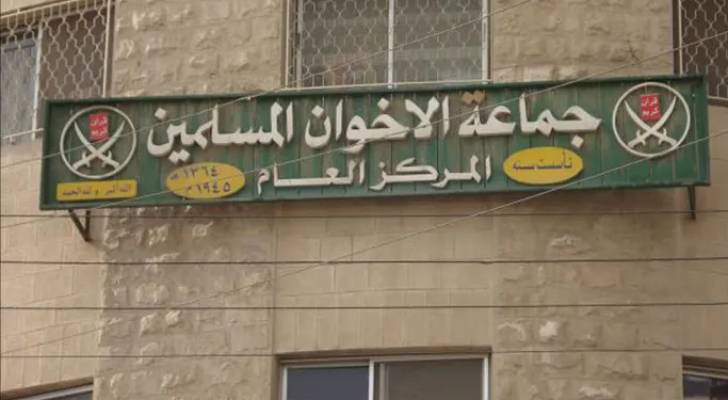Over 30 million JD: Jordan authorities uncover massive Muslim Brotherhood covert funding scheme
Investigations by Jordanian authorities revealed an extensive illegal financial network operated by the banned Muslim Brotherhood group over several years, with its activities significantly intensifying in the last eight years.
The group's illicit funding originated from various sources, including illegal fundraising by ostensibly charitable organizations, returns from direct and indirect investments both inside and outside the Kingdom, and monthly membership subscriptions from within Jordan and abroad.
Details from the ongoing investigation and seized evidence, reviewed by the Jordan News Agency (Petra), show that the group, legally dissolved and its activities illegal by a 2020 Court of Cassation decision, acquired tens of millions of dinars under various pretexts.
A portion of these funds was invested in purchasing apartments outside Jordan, while other sums were used for legally illicit purposes.
Some assets were registered in the names of individual Brotherhood members through direct ownership or shares in certain companies.
To date, investigations indicate that over 30 million dinars were collected in recent years.
The Muslim Brotherhood transferred these sums to Arab, regional, and extra-regional countries. A portion of the funds was also used for internal political campaigns in 2024, in addition to financing activities and cells that have since been apprehended and referred to the judiciary.
Law enforcement agencies seized approximately 4 million dinars on the day the government announced the plot targeting national security in mid-April, after individuals attempted to conceal the money in homes and a warehouse north of Amman at the request of a driver working for a leading figure in the banned group.
Following these investigations, evidence led authorities to detain 11 individuals, while others linked to the case were summoned and released on financial bail.
The group exploited events in Gaza to illicitly collect donations, according to the report, operating without transparent mechanisms for fundraising or declaring the fate of the money.
There was no disclosure of funding sources, total amounts, or coordination with any international or relief organizations for transferring funds to Gaza residents.
The Muslim Brotherhood employed two primary methods for fundraising. One was covert, involving donations collected through certain associations and the group's 44 banned branches, which operated illegally, often utilizing premises belonging to a political party.
The second method was overt, where the group sent in-kind donations it collected to the Jordan Hashemite Charity Organization (JHCO) through its affiliates and certain associations managed by its members.
However, the total funds sent through these overt channels to JHCO amounted to only about 413,000 dinars, roughly 1% of the total donations uncovered by the ongoing investigations.
The collection and transfer of donated funds abroad were shrouded in extreme secrecy, the report published by Petra continued, following a mechanism where roles were distributed among group officials and an individual in Amman linked to an external organization.
This activity generated a highly clandestine, illegal financial cycle relying on suspicious financial practices. The total collected donations, often transferred and hidden by hand in homes and warehouses, were never publicly declared.
Investigations revealed that funds were converted from dinars to dollars before being deposited at a currency exchange in Amman, against which legal action has been taken.
This exchange converted money illegally to an overseas exchange, or sometimes bundles of cash were shipped by air abroad. In some instances, funds were smuggled out of the country by a member of the banned group who frequently traveled to a particular nation.
The group used one of Amman's most populous neighborhoods for fundraising, aiming to leverage community protection and provide cover for its activities.
The large sums of money originating from this neighborhood were notable, suggesting it was not merely a primary source but a destination for those wishing to donate discreetly.
Investigations so far point to consistent funding sources from monthly membership subscriptions (both domestic and foreign) and real estate investments in a regional country, based on confessions.
Initial estimates from the investigations suggest these sources yielded approximately 1.9 million dinars annually.
The illegally collected and disbursed funds were used for political and ostensibly charitable purposes with political agendas.
These included expenditures on a political party, media tools and campaigns, events, protests, interference in syndicate and student elections, and monthly payments to certain affiliated politicians and their propaganda campaigns.




